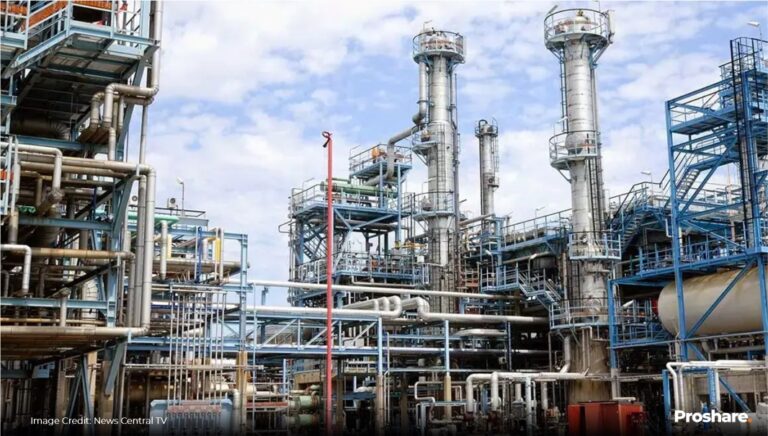Nigeria’s Warri Refinery has shut down operations barely a month after it was declared functional, raising alarms over the transparency and effectiveness of its $897.6 million rehabilitation effort.
According to a document from the Nigerian Midstream and Downstream Petroleum Regulatory Authority (NMDPRA) obtained by The Punch, the refinery failed to produce Premium Motor Spirit (PMS) before being shut down on January 25, 2025, due to safety issues in its Crude Distillation Unit (CDU) Main Heater. The incident has renewed public scrutiny of Nigeria’s refinery management and the government’s handling of oil infrastructure.
Industry stakeholders expressed deep disappointment, particularly as the Port Harcourt Refinery, which resumed operations in November 2024, is currently functioning at just 37.87% capacity—well below the 70% claimed by the Nigerian National Petroleum Company Limited (NNPCL).
The Warri Refinery, commissioned in 1978 to serve Nigeria’s southern and southwestern regions, includes a petrochemical plant with an annual capacity of 13,000 metric tons of polypropylene and 18,000 metric tons of carbon black. Despite massive investment, the plant remains idle once again.
Longstanding Issues Undermining Progress
Nigeria’s government-owned refineries have long been burdened by decades of neglect, mismanagement, and corruption. Recent rehabilitation efforts at Warri, Port Harcourt, and Kaduna refineries were launched to reduce Nigeria’s dependency on imported fuels and to strengthen local refining capacity. However, these efforts have largely fallen short.
The $1.5 billion Port Harcourt refinery revamp, financed through loans backed by international institutions, was expected to restore operations to full capacity after years of inactivity and repeated missed deadlines. Yet, output remains far from expectations.
Between November 2024 and April 2025, the Port Harcourt plant produced an average of 82.55 million litres of refined products per month—falling 135.45 million litres short of its optimal 218 million-litre monthly capacity. These numbers are far from the 1.4 million litres of gasoline, 900,000 litres of kerosene, 1.5 million litres of diesel, and other products promised during its recommissioning.
Private Sector Progress vs Public Sector Setbacks
While government-run facilities continue to underperform, private initiatives like the Dangote Refinery offer a glimmer of hope. As Africa’s largest refinery project nears full capacity, many see it as a potential game changer in resolving Nigeria’s fuel import dependence.
Still, the sudden closure of the Warri refinery after a nearly $900 million facelift highlights deep-rooted inefficiencies in Nigeria’s public oil sector. The incident not only questions the government’s commitment to refinery reform but also casts doubt on the effectiveness of ongoing efforts to revamp the nation’s ailing oil infrastructure.

